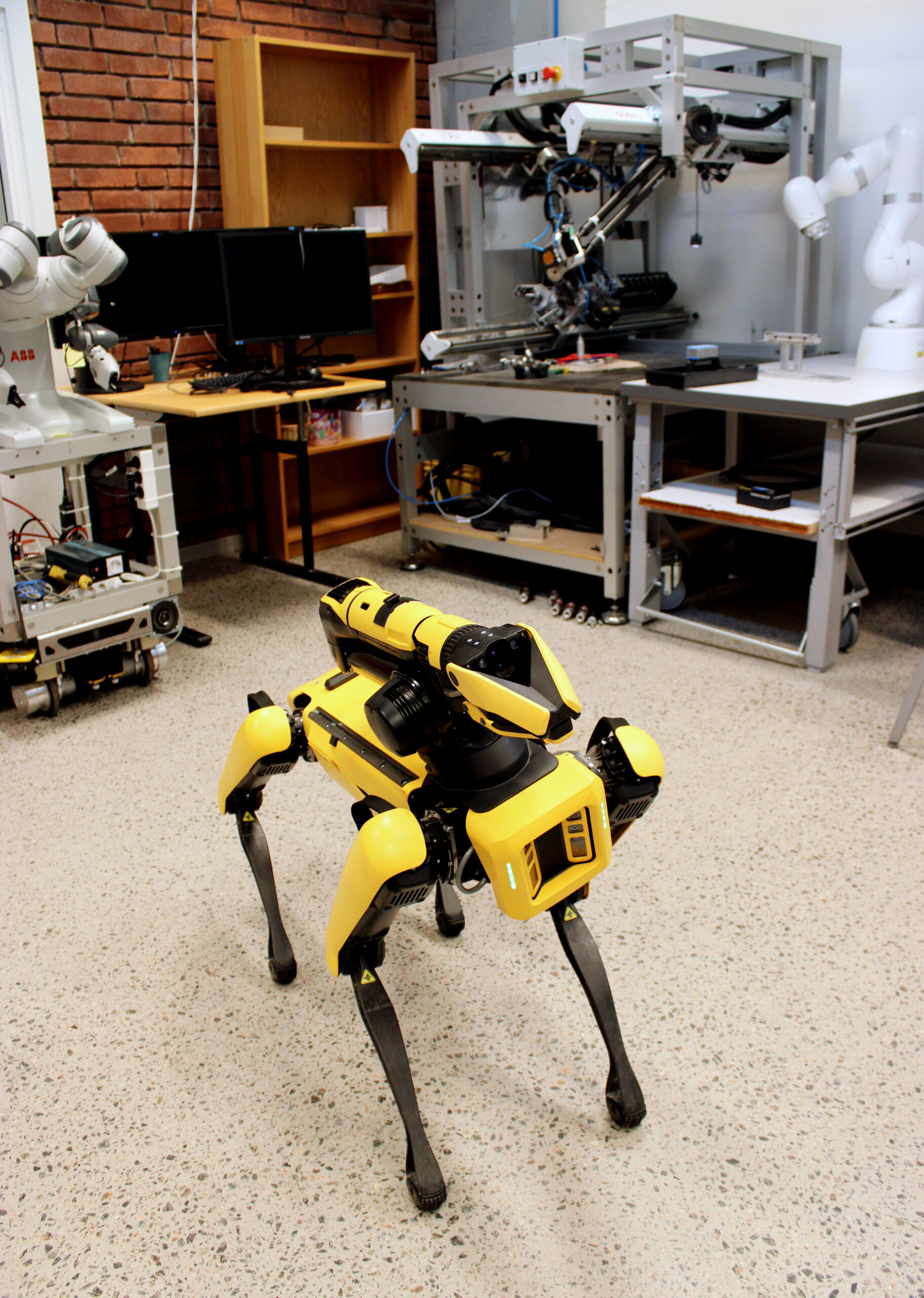Topics in Robot Learning
Credits: 1.5 – 6 ECTS
Level: PhD / Third cycle
Contact: Yiannis Karayiannidis
Course Overview
This mini course is organized in connection with the ELLIIT Focus Period on Robot Learning and offers students an opportunity to deepen their understanding of current research themes in robot learning through participation in lectures, seminars, and project work led by the ELLIIT Focus Period visiting scholars and selected invited speakers.
Learning Activities and Requirements
Students can earn course credits through participation in one or both of the following components:
1. Participation in Lectures in Thematic Areas (3 ECTS)
Students attend lectures in all the thematic areas and participate in project work within one selected thematic area:
Guillaume Bellegarda: Legged Locomotion: Trajectory Optimization, Machine Learning, and Bio-Inspired Control (1 lecture), Nov. 12, 10:15-12:00 in Automatic Control seminar room M:O
Renaud Detry: Assistive robot manipulation: predicting intent from early motion and visual context (1 lecture), Nov. 17, 15:15-16:30 in seminar room M:C
Lecture slides Assistive manipulation
Lecture slides Implicit Grasp Diffusion
Sylvain Calinon: Geometric Representations for Robot Learning (2 lectures), Nov. 24, 15:15-17:00 in seminar room M:E and Nov. 27, 15:15-17:00 in seminar room M:C
Lecture slides part 1
Lecture slides part 2
Active participation and project completion are required for credits. One justified absence can be accepted, then the credits will be reduced by 0.5 ECTS.
2. Participation in Visiting Scholar Seminars (3 ECTS / 1.5 ECTS)
Students attend 17 presentations by visiting scholars as announced on the ELLIIT Focus Period webpage, and submit a reflection report discussing at least 7 presentations.
Up to 4 absences may be justified.
Students who participate only in the second period may receive 1.5 ECTS, with a maximum of 2 justified absences; the reflection report should cover 4 presentations.
Assessment
Assessment is based on:
- Active participation in lectures and seminars.
- Project work with implementation assignments in one thematic area.
- Reflection report demonstrating insight and a critical approach to the presented research.
Learning Outcomes
After completing the course, the students will be able to:
- Identify and discuss contemporary research challenges in robot learning.
- Reflect on the interdisciplinary connections between machine learning, control, and physical interaction in robotics.
- Summarize and synthesize insights from leading international researchers in the field.

